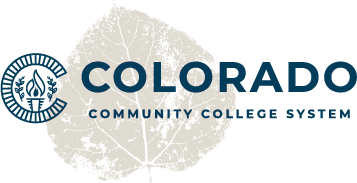State Board | Policies and Procedures
SP 9-41 – Assessment for College Readiness
COLORADO COMMUNITY COLLEGE SYSTEM
SYSTEM PROCEDURE
Assessment for College Readiness
SP 9-41
EFFECTIVE: July 1, 2004
REVISED: June 1, 2015
REVISED: December 11, 2019
REVISED: November 15, 2021
REFERENCE: BP9-41, Assessment for College Readiness
APPROVED:
/ Joseph A. Garcia /
Joseph A. Garcia, Chancellor
Application
This procedure applies to the Colorado Community College System, including its Colleges (CCCS or System).
Purpose
Board Policy (BP) 9-41 authorizes the Chancellor to promulgate procedures necessary to implement assessment for college readiness. Furthermore, this procedure is consistent with the Colorado Commission for Higher Education (CCHE) Statewide Remedial Education Policy.
This procedure provides guidance for implementation of assessment for college readiness in reading, writing, and mathematics of students within CCCS.
Definitions
“College Readiness” is the determination that a student has the skills necessary to be successful in a college-level course.
“Default Placement” is the practice of direct placement into a college-level course with a paired SAI support course unless the student provides evidence for college-level placement.
“Developmental Education” means courses that are prerequisites to the level of work expected at a postsecondary institution and include academic skills courses and preparatory courses.
“Guided Self-Placement (GSP)” is a locally developed tool or process that allows students, in consultation with advisors and/or faculty, to determine the appropriate starting coursework in mathematics, English, and English as a Second Language (ESL). GSP encourages students’ personal metacognitive evaluation and self-determination as a part of the placement process. GSP tools provide students with basic information about multiple measures and help them, through questions, examples, and course descriptions, determine the appropriate level of placement aligned with the student’s educational goals.
“Supplemental Academic Instruction (SAI)” means co-requisite courses, modified co-requisite courses, and academic support models that use peer or instructor study sessions, or individualized in-class academic support to improve student learning, retention, or success.
Procedure
Requirement for Assessment:
Degree-seeking undergraduate students must be assessed in mathematics, writing, and reading prior to or during the first semester of their college career.
All students (whether degree-seeking, non-degree-seeking, concurrent enrollment, exchange students, etc.) must be assessed in the applicable subject if they enroll in a course that has a specific math, English, or reading prerequisite.
Exemptions from Assessment:
Students who would normally be required to be assessed can demonstrate college readiness or are otherwise exempt from the assessment requirement if the student:
- Has completed either a college-level transfer mathematics and college-level transfer writing course or a remedial course (if required) in mathematics, writing, and reading;
- Earned a baccalaureate degree;
- Earned an associate degree;
- Is pursuing a vocational certificate, unless the individual college requires assessment of certificate-seekers; or
- Has a combination of recent high school unweighted GPA and related high school coursework at or above the levels established by CCCS.
Assessment Methods and Minimum College Readiness Standards:
Colleges may use any of the primary indicators of college readiness and cut scores as defined by the CCHE Remedial Education Policy. Colleges may also use GSP and/or Default Placement in lieu of other assessment methods. A student who scores at the indicated score or above, within the five years prior to enrollment, is determined to be college ready and therefore is not in need of college readiness instruction. If students retake an assessment, Colleges will accept the higher of their two testing scores, even if that is the original test score.
For students who come to CCCS as “Ability to Benefit” students, a federally certified assessment should be used to determine college readiness.
If a student, 1) has not taken one of these tests to demonstrate college readiness, 2) brings a college readiness score that falls below the CCHE identified score for a primary indicator of college readiness, or 3) has taken a test that is more than five years old, the student must take a CCCS-approved assessment, which includes GSP and/or Default Placement. Students must score at or above the levels established by CCCS on such assessment in order to be considered college ready.
Supplemental Academic Instruction and Developmental Education:
- Colleges must advise students in the appropriate level course work upon assessment. Students meeting the specified minimum cut score may enroll in college-level courses and be reported as such.
- Colleges must advise students to enroll in SAI courses or Developmental Education/remedial skills classes during the first semester following a placement test when assessment scores indicate inadequate college preparation in any or all of these areas. Colleges must advise students of their responsibility to complete SAI courses or Developmental Education/remedial course work within the first 30 credit hours.
- Colleges must ensure that each enrolled student identified as needing Developmental Education or remedial course work is provided with written notification identifying which state institutions offer such Developmental Education courses, including online courses.
- All students whose assessment scores do not meet the standards established by CCCS are responsible for completing Developmental Education instruction during their first thirty (30) credit hours of attendance at the College. For students with unmet remedial needs who have completed 30 or more credit hours, Colleges must require that such students meet with an academic advisor on the need to address college readiness deficiencies before registering for additional course work.
Data Collection:
- CCCS shall collect and report as required by CCHE regarding students who are assessed.
- Documentation of students’ college readiness assessments must be retained for a minimum of five years after testing.
Revising this Procedure
CCCS reserves the right to change any provision or requirement of this procedure at any time and the change shall become effective immediately.


